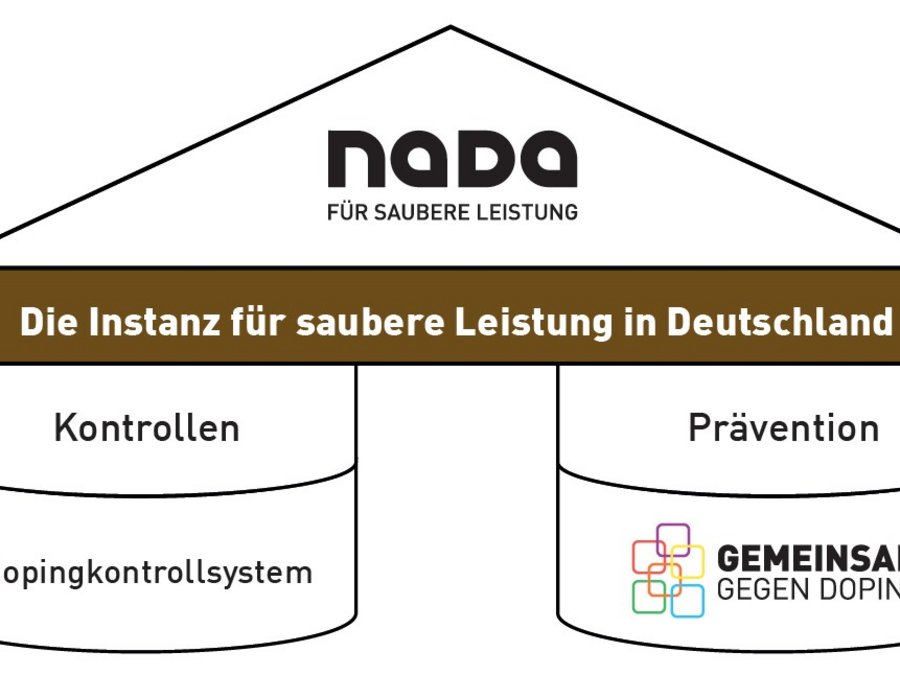![[Translate to English:] Die Geschäftsstelle der NADA](/fileadmin/_processed_/4/a/csm_GeschaeftsstelleH38_2440x994_7cbfa63c04.jpg)
NADA Germany's organisation
The National Anti Doping Agency of Germany is the key body for clean sports in Germany. NADA Germany was founded in July 2002 and introduced with a festive ceremony in the city of Bonn’s historic town hall Altes Rathaus. On November 21st of the same year, NADA Germany was officially recognised and approved by the relevant supervisory authority for foundations. Ever since, NADA Germany has been striving to realise its foundational goals and stands for fairness and equal opportunities in sports.
As a non-profit foundation by civil law, NADA Germany is an independent body. Since January 2020 its funding is based on the institutional funding by the German state. Today, NADA Germany has become the centre of competence for anti-doping activities in Germany and unites all forces for doping-free sport in a single organisation. NADA Germany’s anti-doping work is based on two pillars: In addition to an effective testing programme, education measures and offers are fundamental for the overriding goal of clean performance by athletes..
In accordance to the constitution of the foundation, NADA Germany’s tasks include…
- implementing the World Anti-Doping Code in the National Anti-Doping Code
- establishing a standardised testing system for Germany
- doping education
- answering medical inquiries and issuing therapeutic use exemptions (TUEs)
- setting up an independent court of arbitration for sport (since January 1st 2008)
- as well as international cooperation.
Thereby, NADA Germany significantly contributes to the preservation of values in sports.
 Enlarge Image
Enlarge Image Enlarge Image
Enlarge ImageDepartments of NADA Germany
With its departments: Testing Programme, Prevention, Medicine and Legal matters - complemented by the Communication and Marketing Department and the Human Resoruces, Finance and Controlling Department - NADA Germany is committed to pure performance in many different ways.
Quality management
Since 2018, NADA Germany has been certified according to DIN EN ISO 9001:2015 for the scope "Promotion, implementation and coordination of anti-doping work in Germany by means of appropriate sports science, educational, social, medical and legal measures". Since the beginning of 2017, it has pushed the development of an internal quality management system and created the conditions for implementation according to the DIN standard. For the certification, all work, communication and decision-making processes were transparently documented and summarised in a manual. An annual surveillance audit by TÜV Hessen is a binding requirement for maintaining the certification.
